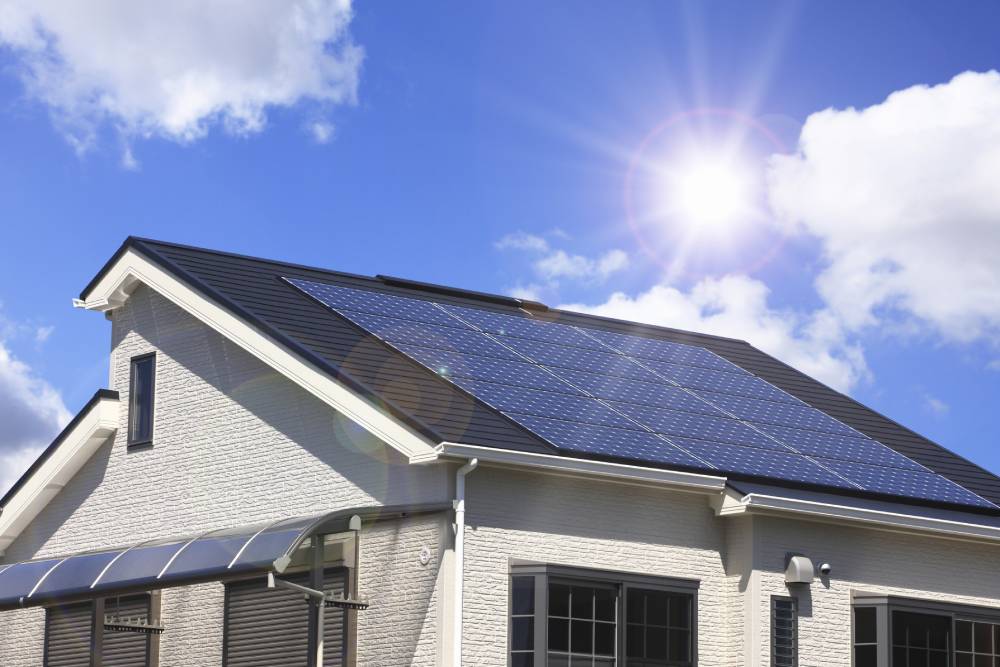Have you been considering installing a solar energy array? Not sure of the advantages and disadvantages of renewable energy? That’s understandable and you’re not alone in your dilemma. There are a number of considerations such as upfront costs, how long will it take to pay for itself, maintenance, repairs, and so on. There’s also PG&E’s constant rate hikes, it’s not so robust infrastructure, summertime brownouts or rolling blackouts, and the general unreliability of the electrical grid. In light of these factors, a solar energy system can be an excellent solution to these issues.
What Are the Advantages of Solar Energy?
There are a number of advantages of solar energy in California. Aside from a constant supply of radiant heat and sunlight, at least during the day, it’s got major advantages.
- It Can Reduce Your Electric Bill – A solar energy system can dramatically reduce your electric bill. California requires net metering, where you sell the excess power you generate back to the utility company, which is applied against your monthly bill. Note: this does not apply to systems designed to generate more power than a home can use in a year. Check with your utility company for details.
- Relatively Short Payback Time – The time it takes for the system to pay for itself is only 6 – 8 years. Once you’ve recovered your initial investment, your solar energy is virtually free. How long the payback time is depends on your initial system scope and cost, which will vary from system to system, depending on the individual home’s requirements.
- Lower System Costs – Solar energy has gotten cheaper over the last few years. In the last decade, the cost of solar power has dropped over 70%! This has made solar energy systems much more affordable to more homeowners than ever before.
- Tax Credits – You can take advantage of federal tax credits for solar energy systems. For 2021 and 2022 there is a tax credit equal to 26% of your system costs and is applied directly against your income taxes. There may also be state and local tax incentives. Talk to your accountant or contact our office at Royal Solar for more details on available tax incentives and credits.
- Get a Good Return on Your Investment – Along with net metering, you may be eligible for Solar Renewable Energy Credits (SRECs), along with other incentives, which can help reduce the payback time for your system to just four years. Check with your accountant and/or our office at Royal Solar for more information and details.
Benefits of Solar Energy
- Environmentally Friendly – Electricity generated by solar panels doesn’t create any greenhouse gasses.
- Energy Independence – Having solar panels makes you less dependent on the power grid and reduces our dependence on fossil fuels. It also protects you from the inevitable utility rate increases.
- Minimal Maintenance Costs – Solar energy systems require minimal maintenance. Washing your solar panels a couple of times a year is pretty much all you need to do.
- Expandable – You can expand your existing system relatively easily if necessary, and thereby produce more electricity for your family’s use.

Disadvantages of Solar Energy
There are advantages and disadvantages to renewable energy. While the disadvantages of renewable energy and solar energy can be an obstacle, there are ways to deal with them.
- The Weather – Weather is the biggest disadvantage to solar energy. Rain, clouds, snow, and other factors can impede the efficiency of a solar energy system.
- Sun Angle – The angle of the sun relative to the position of your home. This can be remedied by carefully designing your solar system to capture as much sunlight as possible.
- Shade – You will need a large, unshaded area for your solar energy system to work well. If you have a lot of shade on your property, this could be an issue. You may need to have your trees pruned to allow sufficient sunlight to reach your system.
- Initial Costs – The initial investment of a solar energy system can be high. You can mitigate this cost with financing, tax incentives, and other methods. Your system will start to pay for itself the instant it’s activated.
- Space Requirements – Solar panels require a sizeable amount of space. Your roof should be large enough for your system. If you’re installing a large commercial system, accommodations may need to be made.
- You Can’t Take Them with You – If you do move, you may not want to take your solar system with you. However, the panels do add value to your home and will help with increase the sale price. If you plan to move in the near future, you should purchase your system outright, because having the new owner take over the lease on a system is just one more set of paperwork.
To Install or Not to Install?
Given all the factors inherent in a major decision such as installing a solar energy system, some hesitation is inevitable. There are problems with renewable energy, such as weather, costs and some occasional intermittent energy production. Even with these and other issues, the advantages of installing a solar energy system far outweigh the negatives.
The initial cost of installing a solar energy system can be reduced with a financing plan, federal, state and local tax credits and incentives and reduced energy bills which can help pay for your system. All of these can bring you a great return on your investment.
Royal Solar can address any issues of the location of your system, such as shade, sun angle, size, and other technical factors. Calculating sun angles, space requirements, system size, installation costs and other factors will be completed before installing the system. Given the flexibility of solar system installations, these factors are relatively minor.
Yes, if you move, you could take your solar system with you, but leaving your system will add value to your home. This will be a valuable selling point. Given the increasing demand for solar energy systems, having a system already installed in a home will be a great incentive for a buyer.
For Northern California homeowners, installing a solar energy system will be a good investment. Less dependency on an unreliable power grid, protection from constant rate increases, much lower utility bills, increased home values, benefits to the environment, and other advantages far outweigh the disadvantages.

